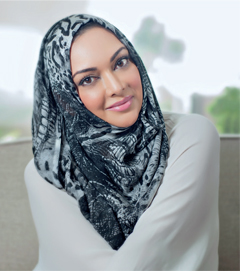From pediatric questions to surgical queries, our panel of experts is here to answer your questions….
Taking Care of the Baby
Question: How safe are baby wipes for my baby during a diaper change?
Dr. Hossam Eldin Maged Abdelrahman, Pediatric Specialist responds: For the first six months of life, you can clean your baby during diaper changes with an ultra-soft paper towel or clean cloth and warm water. Baby wipes are not recommended. All pediatricians now recommend just water and cotton wool if required for the first six months. The UK’s National Institute for Clinical Excellence (NICE) recommends that mothers should only use water on their infants, current NICE guidelines recommend using cotton wool and water. Pediatricians suggest parents only use baby wipes when they are travelling and say at home it is safer to use paper towels with water. If you plan on using wipes after six months, ensure they are both fragrance free and alcohol free.
You can use baby wipes later but it probably nicer on their skin to use baby lotion and cotton wool. Even wipes that are marketed for use on sensitive skin can still irritate fragile skin, so if your child has diaper rash try to avoid the use of any wipes. Instead, try using a small squeeze water bottle with warm water to clean the bottom and pat dry with a soft, clean washcloth. Several children have been diagnosed with an allergy to a certain preservative found in many brands of baby wipes. This chemical, methylisothiazolinone (MI), has been found to be the cause of red rashes in multiple children. Choose
a brand that’s alcohol-free and unscented, which will minimize irritation. If baby has eczema don’t use wipes and wash him in the sink
Child and Eyesight
Question: What are some signs my preschool- going child may require glasses?
Dr. Pankaj Lamba, Opthalmologist responds: “Parents play an important role to identify signs that their pre-school
child has vision problems and may need glasses. Some of these include: a child watches TV from close distance or is not
interested in toys and surroundings. He/she may fail to identify things in dark and may also have crossed eyes (also known as squint.) It is important to consult an ophthalmologist for check up to see if your child has vision related problems.”
Skin Problems
 Question: I am a 42-year-old woman and have suddenly developed large red patches that look scaly and inflamed. Is this rosacea?
Question: I am a 42-year-old woman and have suddenly developed large red patches that look scaly and inflamed. Is this rosacea?
Mona Syed-Mirza, Skin Expert in Dubai responds: “Before one can be sure what the diagnosis is, it’s best to consult a dermatologist who will be able to check to see if it is an inflammatory skin condition. These include psoriasis and the various forms of dermatitis which includes many types of skin conditions, including contact dermatitis. Rosacea is rarely seen in childhood, rather it is usually seen in women between 30 and 50 years of age. Other risk factors for rosacea
include having fair skin, being of English, Irish, or Scottish descent, and those with a positive family history of rosacea
as well as menopause. The cause of rosacea is unknown and because of this, there is no way to prevent it. It is possible,
however, to prevent rosacea flare-ups. In many people, rosacea is triggered by stress, spicy foods, cosmetics, exercise,
sun, wind, heat, and cold. Rosacea sufferers can find out what their triggers are by making a list of activities or foods that
preceded a flare and avoiding these activities and foods in the future. To date, rosacea is not considered curable. There are
treatments, such as photodynamic therapy and isotretinoin that can control rosacea, giving patients months or years
of long-term results. Other rosacea treatments include oral antibiotics, topical creams, cleansers, and glycolic peels. Sun
exposure is a known cause of flares of rosacea. To prevent flares sunscreen and sun avoidance is highly recommended.

